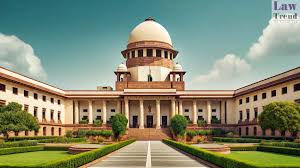
Supreme Court reviews the CBI report on RG Kar Medical College rape-murder case
The Supreme Court held its sixth hearing today on the savage rape and murder of a resident doctor at Kolkata's RG Kar Medical College, scrutinising the Central Bureau of Investigation's (CBI's) most recent status report. On October 15, 2024, the Chief Justice of India (CJI) evaluated the developments in the CBI's sixth report. The story continues to get national attention due to its tragic character and the engagement of civic volunteers, raising worries about security in public institutions.
The CBI stated in the status report that they will submit a chargesheet against Sanjoy Roy, the lead accused in the case, on October 7, 2024. Kolkata Police initially arrested Roy, a civic volunteer, and later transferred him to the CBI for further inquiry. The allegations filed include offences under sections 64 and 66 of the Bengal Non-Statutory Crimes Act (BNS). Sealdah's Additional Chief Judicial Magistrate (ACGM) has acknowledged the chargesheet and scheduled a trial hearing for November 4, 2024.
The CJI led the Supreme Court bench as they studied the report and enquired about any additional suspects in the case. The CBI added that investigations are ongoing to ascertain whether other people were involved in the horrible act. Despite the submission of the chargesheet, there is still doubt about the potential involvement of other persons, raising questions about the completeness of the initial investigation by local authorities.
A key area of dispute at the hearing was the recruitment and function of citizen volunteers in sensitive institutions such as hospitals and schools. The CJI harshly criticised the use of civic volunteers in law enforcement and security positions, particularly in environments that require greater security standards. The court expressed concern about the insufficient vetting of such individuals, emphasising that unqualified individuals cannot assume the duty of protecting public safety.
The CJI has ordered the West Bengal government to produce a thorough affidavit outlining the recruitment procedure, educational requirements, and background checks for civic volunteers. Furthermore, the CJI urged the state to specify the specific roles civic volunteers play in various institutions, along with payment arrangements and financial allocation for their deployment.
The RG Kar incident has revealed flaws in the use of citizen volunteers for security roles in vital public institutions. Frequently hired on a temporary basis, civic volunteers often lack the rigorous training and oversight necessary to address security issues in hospitals and schools. The Supreme Court's inquiry highlights growing concerns about the trustworthiness of such volunteers in safeguarding vulnerable groups like patients, students, and healthcare professionals.
The West Bengal administration plans to provide a comprehensive overview of its civic volunteer system during the next hearing following the Diwali holiday in response to these concerns. This issue has become symptomatic of greater systemic inadequacies in guaranteeing medical personnel's safety, a matter that has sparked public outrage and resulted in protests by healthcare workers across the state.
The Supreme Court's oversight has ensured continuous monitoring of the matter as the investigation continues. The court's emphasis on the role of civic volunteers could potentially lead to broader reforms in the protection of public institutions, especially in areas like West Bengal. For the time being, the focus is on delivering justice for the victim and resolving the structural faults that contributed to such a catastrophe. The next hearing, scheduled for early November, will provide more information on the case's progress.